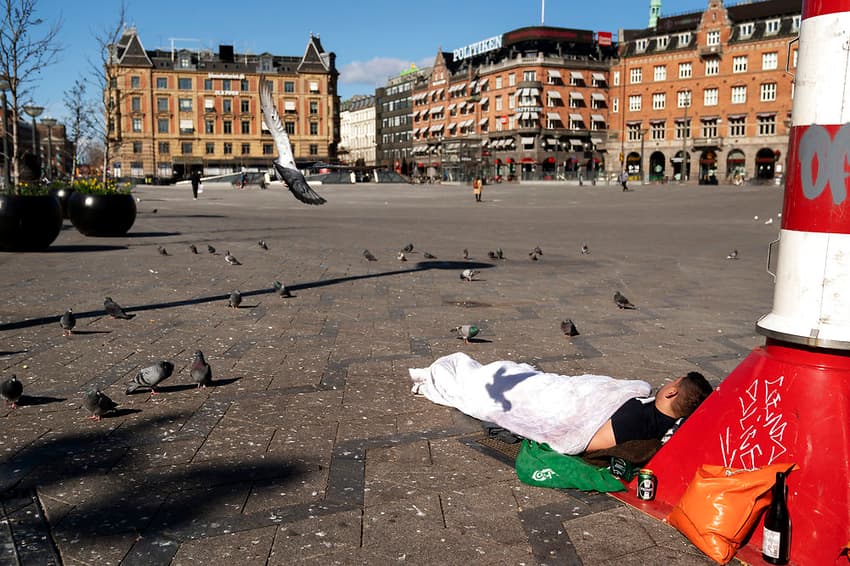Denmark makes homeless a priority in vaccine rollout

Denmark on Tuesday announced it would include homeless people among those given priority for Covid-19 vaccines, after calls from charities and officials to care for the vulnerable group.
The Scandinavian country started vaccinations on December 27th and is currently among the quickest in the European Union, in terms of jabs per capita, in the rollout of vaccine.
The Danish strategy has been split into 12 priority groups, of which the first five are currently offered the vaccine although this also depends on the region they live in.
"Homeless and socially vulnerable people who are particularly at risk are vaccinated in category 5," the Ministry of Social Affairs said in a statement.
Those in the group but not deemed to be particularly at risk will still be "given priority before the general population", it added.
According to social services, Denmark has about 6,500 homeless people, and the decision follows calls from charities and elected officials who have pointed to an increased risk of transmission among the homeless.
"There is an urgent need to prioritise our most vulnerable, the people living in the streets, those with the largest and most complex need for help. Vaccines + aid packages - now!" the legal aid group Gadejuristen (The Street Lawyers) said in a post on Facebook.
Nearly three percent of the Danish population has received the first dose of the Covid-19 vaccine already and 0.5 percent have also had the second dose, making Denmark one of the leading countries in the EU.
READ ALSO:
-
When and how can foreign residents get the Covid-19 vaccine in Denmark?
-
Danish region pauses Covid-19 vaccination for new groups after supply delay
Comments
See Also
The Scandinavian country started vaccinations on December 27th and is currently among the quickest in the European Union, in terms of jabs per capita, in the rollout of vaccine.
The Danish strategy has been split into 12 priority groups, of which the first five are currently offered the vaccine although this also depends on the region they live in.
"Homeless and socially vulnerable people who are particularly at risk are vaccinated in category 5," the Ministry of Social Affairs said in a statement.
Those in the group but not deemed to be particularly at risk will still be "given priority before the general population", it added.
According to social services, Denmark has about 6,500 homeless people, and the decision follows calls from charities and elected officials who have pointed to an increased risk of transmission among the homeless.
"There is an urgent need to prioritise our most vulnerable, the people living in the streets, those with the largest and most complex need for help. Vaccines + aid packages - now!" the legal aid group Gadejuristen (The Street Lawyers) said in a post on Facebook.
Nearly three percent of the Danish population has received the first dose of the Covid-19 vaccine already and 0.5 percent have also had the second dose, making Denmark one of the leading countries in the EU.
READ ALSO:
- When and how can foreign residents get the Covid-19 vaccine in Denmark?
- Danish region pauses Covid-19 vaccination for new groups after supply delay
Join the conversation in our comments section below. Share your own views and experience and if you have a question or suggestion for our journalists then email us at [email protected].
Please keep comments civil, constructive and on topic – and make sure to read our terms of use before getting involved.
Please log in here to leave a comment.